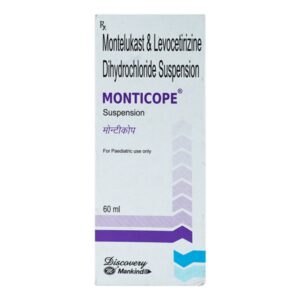Description
About Cipladine Ointment
Cipladine Ointment is used to treat common skin infections. It treats and prevents skin infections in minor burns, lacerations (deep cuts in the skin), cuts, and abrasions (the first layer of skin is scraped off). Skin infection occurs when foreign microorganisms like fungi or bacteria invade the skin and affect the tissues.
Cipladine Ointment contains Povidone Iodine. It works by inhibiting the growth of infection-causing microbes. As a small molecule, iodine can easily penetrate microorganisms and oxidize essential proteins, nucleotides, and fatty acids, leading to cell death. Cipladine Ointment is effective against bacteria, fungi, viruses, and protozoa.
Cipladine Ointment is for external use only. Cipladine Ointment may cause common side effects like red or inflamed skin, peeling skin, dry skin, and irritation at the application site. These side effects gradually resolve during the treatment and do not require medical attention. However, if the side effects persist longer, please seek medical help.
Brief your medical history to the doctor if you are allergic to iodine or povidone. Let your doctor know if you have thyroid diseases, liver, and kidney problems before starting Cipladine Ointment. Please tell your doctor if you are undergoing any lithium therapy or radioactive iodine treatment. Do not use Cipladine Ointment before or after radioiodine scintigraphy or radioiodine treatment of thyroid carcinoma. Please consult your doctor if you are pregnant, planning to conceive or are a lactating mother before using Cipladine Ointment.
Uses of Cipladine Ointment
Medicinal Benefits
Cipladine Ointment is an antiseptic and disinfectant used to treat and prevent skin infections in minor burns, lacerations (deep cuts in the skin), cuts, and abrasions (the first layer of skin is scraped off). It works by inhibiting the growth of infection-causing microbes. Cipladine Ointment is effective against bacteria (gram-positive and gram-negative, including antibiotic-resistant and antiseptic-resistant strains), fungi, viruses, and protozoa.
Directions for Use
Storage
Side Effects of Cipladine Ointment
- Red or inflamed skin
- Peeling skin
- Dry skin
- Irritation at the application site
Drug Warnings
Cipladine Ointment is for external use only. Do not swallow it; in case of accidental swallowing, please seek medical help immediately. Do not use Cipladine Ointment, if you are allergic to povidone-iodine. Povidone Iodine may permanently discolour the gold jewellery; hence remove all kinds of jewellery while using it. Let your doctor know if you have an overactive thyroid gland (hyperthyroidism) or any other thyroid diseases, including swelling (nodular colloid goitre, endemic goitre or Hashimoto’s thyroiditis), liver, and kidney problems, before starting Cipladine Ointment. Please tell your doctor if you are undergoing any lithium therapy or radioactive iodine treatment. Cipladine Ointment should not be used before or after radioiodine scintigraphy or radioiodine treatment of thyroid carcinoma. Please consult your doctor if you are pregnant, planning to conceive or are a lactating mother before using Cipladine Ointment.
Drug Interactions
Drug-Drug Interaction: Cipladine Ointment may interact with anti-depressants (lithium), antiseptics and products containing enzymatic components, alkali, mercury, silver, hydrogen peroxide, tannic acid, octenidine, and taurolidine and should not be used simultaneously.
Drug-Food Interaction: No interaction found/established.
Drug-Disease Interaction: Before using Cipladine Ointment, let your doctor know if you have any allergic reactions to iodine or povidone, overactive thyroid gland (hyperthyroidism) or any other thyroid diseases, including swelling (nodular colloid goitre, endemic goitre or Hashimoto’s thyroiditis), liver, and kidney problems.
Drug-Drug Interactions Checker List
- LITHIUM
Habit Forming
Diet & Lifestyle Advise
- Use mild soap while taking baths and prefer warm baths.
- Do not walk barefoot at places like gym showers to prevent infections.
- Do not scratch the affected skin area as it can spread the infection to other body parts.
- Avoid sharing towels, combs, bedsheets, shoes or socks with others.
- Wash your bedsheets and towels regularly.
- Avoid or limit the intake of alcohol and caffeine.
- Manage stress, eat healthily, drink plenty of water, exercise regularly, and get plenty of sleep.
Disease/Condition Glossary
Skin infection: A skin infection can occur when the skin is broken, cut or wounded. This skin infection allows pathogenic microorganisms to enter and invade the tissues surrounding the wound. It can be caused by bacteria, fungi, viruses or parasites. Symptoms include redness, pain, tenderness of the skin, minor bumps or boils, rashes, blisters, cracked/dry skin, swelling, stinging or burning sensation, pus formation, and itching. It can be treated using topical antibiotics. Sometimes, for a severe infection, an oral antibiotic may be required.







Reviews
There are no reviews yet.